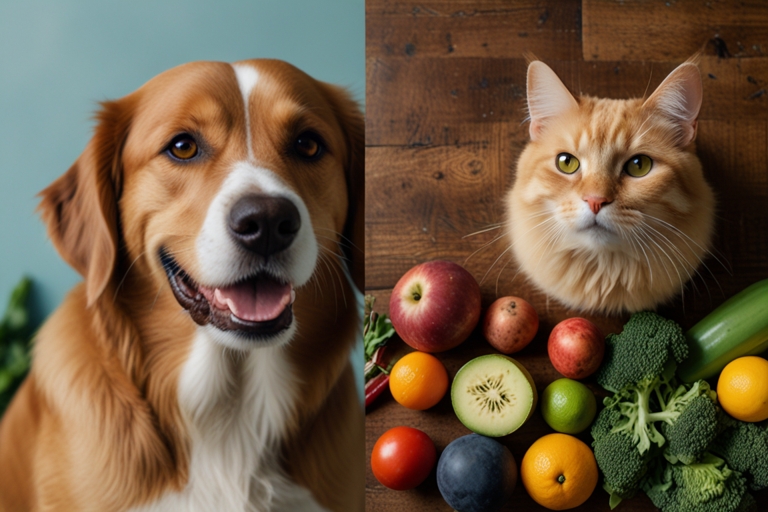How to Create a Healthy Diet for Your Pet
Introduction
How to Create a Healthy Diet for Your Pet! Providing a healthy diet for your pet is essential for their overall well-being, longevity, and quality of life. With the right balance of nutrients, your pet can enjoy a vibrant life full of energy and health. This article will guide you through the essentials of pet nutrition, how to create a balanced diet, and best practices for feeding your furry friend.
**Understanding Pet Nutrition**
Pet nutrition is about more than just feeding your animal; it’s about understanding their unique dietary needs based on species, age, size, and health conditions. Dogs and cats, for example, have different nutritional requirements. It’s crucial to familiarize yourself with what constitutes a complete diet for your specific pet.
**Creating a Balanced Diet for Your Pet**
A balanced diet for pets consists of several key components. Here’s a breakdown:
**1. Protein Sources**
Protein is vital for your pet’s growth, development, and overall health. It helps in building and repairing tissues and is crucial for producing enzymes and hormones. Good sources of protein include:
– Lean meats (chicken, turkey, beef)
– Fish (salmon, tuna)
– Eggs
– Legumes (for vegetarian options)
When selecting protein sources, opt for high-quality ingredients and ensure they are appropriate for your pet’s age and size.
**2. Carbohydrates**
Carbohydrates provide energy and are essential for a well-rounded diet. They also help with digestion. While pets do not require as many carbohydrates as humans, including them in moderation can be beneficial. Good carbohydrate sources include:
– Whole grains (brown rice, oats)
– Vegetables (sweet potatoes, carrots)
– Fruits (blueberries, apples)
Avoid overly processed grains and choose whole food options to ensure your pet receives optimal nutrition.
**3. Fats**
Fats are an important energy source and play a vital role in absorbing certain vitamins. They contribute to healthy skin and a shiny coat. Include healthy fats in your pet’s diet from sources such as:
– Fish oil
– Flaxseed oil
– Chicken fat
Always consult your veterinarian for appropriate fat ratios in your pet’s diet, as too much fat can lead to obesity and other health issues.
**4. Fiber**
Fiber aids in digestion and helps maintain a healthy weight. It can prevent issues like constipation and promotes gut health. Good sources of fiber for pets include:
– Vegetables (pumpkin, green beans)
– Fruits (apples, pears)
– Whole grains
Introduce fiber gradually to avoid digestive upset, and always provide fresh water.
**Homemade Pet Food Recipes and Commercial Options**
Many pet owners are turning to homemade diets, believing they can provide fresher and healthier options. If you choose to prepare homemade pet food, ensure it’s balanced and meets your pet’s nutritional requirements. Consult recipes from reputable sources or consider working with a veterinary nutritionist.
Commercial pet foods can also offer balanced nutrition. When selecting commercial food, look for:
– AAFCO (Association of American Feed Control Officials) certification
– High-quality ingredients
– Specific formulas tailored for your pet’s life stage and health needs
**Consulting Professionals and Monitoring Your Pet’s Health**
Consulting a veterinarian or a pet nutritionist is crucial, especially if your pet has special dietary needs or health issues. Regular check-ups can help monitor your pet’s weight and overall health, allowing you to adjust their diet as needed.
**Best Practices for Feeding Pets**
– **Portion Control**: Follow feeding guidelines based on your pet’s weight and activity level to prevent obesity.
– **Regular Feeding Schedule**: Establish a routine for feeding times, which helps regulate digestion and behavior.
– **Fresh Water**: Always provide fresh, clean water for your pet to stay hydrated.
– **Treats in Moderation**: Treats should make up only a small percentage of your pet’s daily calorie intake.
**Conclusion**
Creating a healthy diet for your pet involves understanding their unique nutritional needs and providing a balanced mix of proteins, carbohydrates, fats, and fiber. Whether you choose homemade meals or high-quality commercial foods, always prioritize your pet’s health and well-being. Regular consultations with veterinary professionals and careful monitoring of your pet’s health will help you make informed decisions for a long, happy life together.


